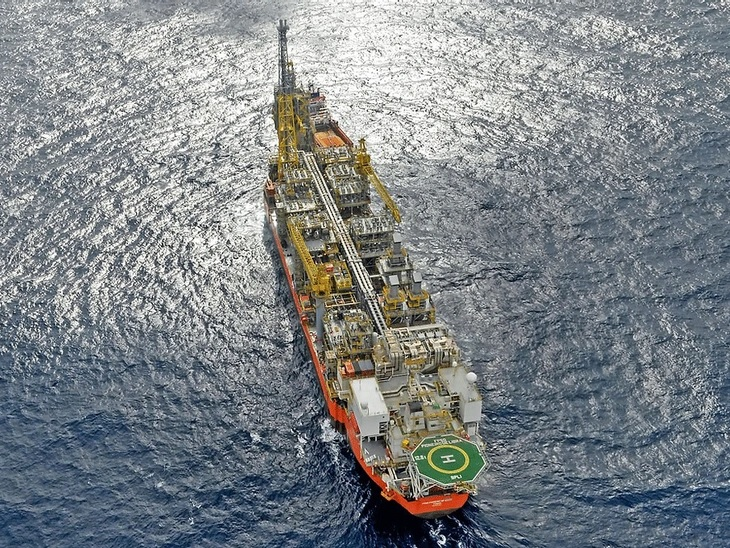
 Ministry of Mines and Energy (MME)
Ministry of Mines and Energy (MME)
Minister Alexandre Silveira will present the program “Potencializa E&P” at the next CNPE meeting, which aims to promote regional development and foster national production
T&B Petroleum/Press Office MME
The Minister of Mines and Energy, Alexandre Silveira, will launch the Potencializa E&P program, which aims to guarantee investments in oil and natural gas exploration and transform Brazil into the fourth largest oil producer in the world. The initiative will be presented at the next meeting of the National Council for Energy Policy (CNPE) – still without a set date.
Potencializa E&P intends to work on the critical points for the development of exploration in frontier areas and encourage investments in mature fields or marginal economic ones. In addition, the program intends to promote regional development, encourage independent oil and gas producers, whose actions generate increased revenue, taxes, government participation, jobs and income.
According to the minister, the objective is to ensure, through public policy measures, the continuous development of the Oil and Natural Gas Exploration and Production industry in Brazil. According to him, the extremely challenging scenario of global competition for investments, the need to replenish oil and gas reserves and the energy transition require speed from all government actors, following the guidelines of President Lula's government to promote the development of the Brazil with common sense and respect for the environment.
“The future of the energy transition also involves oil and natural gas, we need to take advantage of the wealth of the Brazilian people that is underground. Without measures to promote its exploration and production, there are no jobs, income or regional development. We have a window of opportunity, we cannot miss the new pre-salt that may be on the equatorial margin and that will be the passport to the future of the North and Northeast regions of Brazil”, said Alexandre Silveira.
Scenario
After the great pre-salt discoveries that took place during President Lula's government, large investments in exploration and production of oil and natural gas were attracted, with emphasis on the performance of Petrobras. Brazil currently produces three million barrels of oil per day. The expectation is that this number will reach 5.4 million by 2029, with the expectation of becoming the 4th largest oil producer in the world – with 80% of these resources coming from the pre-salt layer.
The positive results obtained as a result of the actions of the Lula and Dilma governments require continuity, with the replacement of oil and natural gas reserves, given that the R/P indicator (ratio between proved reserves and production) is at 12.5 years.
The pre-salt areas not yet contracted present a high geological risk and little potential for new discoveries of significant volumes of oil and natural gas, making it necessary to develop new exploratory frontiers such as the Brazilian equatorial margin, which extends from the coast of Rio Grande do Norte to Oiapoque (AP), in the far north of the country. The last well with approved environmental licensing on the equatorial margin was in 2015 in the Potiguar Basin.
According to studies by the MME, the resumption of environmental licensing for E&P projects on the equatorial margin would have the potential to generate state revenue of US$ 200 billion, if 10 billion barrels of oil were discovered and produced in the region, in addition to generating hundreds of thousands of jobs. Since the end of January 2023, Petrobras has had a drilling rig stopped in deep water off the coast of the state of Amapá, at a cost of more than US$500,000 per day, awaiting the issuance of the proper license.
Development
For Minister Alexandre Silveira, the Oil and Natural Gas sector is a driving force behind Brazil's development. The sector accounts for 15% of the Brazilian industrial GDP, for 48% of the domestic supply of energy and generates more than 1.6 million direct and indirect jobs.
“It makes no sense that Guyana and Suriname are attracting investment and wealth, with almost a hundred wells drilled, with more than 13 billion barrels of oil having already been discovered, while we are stuck in the uncertainty brought about by the inertia of the last government. The last administration not only allowed deforestation in the region, but also impeded its economic development by not granting environmental licensing in a safe and responsible manner. The last licensed well in the region was in 2015, still under the Dilma government. Since then, nothing has been done to improve environmental licensing,” he said.
Silveira claims that the strengthening of the oil and gas industry will bring great opportunities to the North and Northeast of the country.
“We need to give young people in these regions the opportunity to dream of a job in the oil industry and to acquire technical qualifications. The new pre-salt on the equatorial margin will be a revolution in employment, income and dreams of young people who want a better job”, concluded the minister.
Contact us